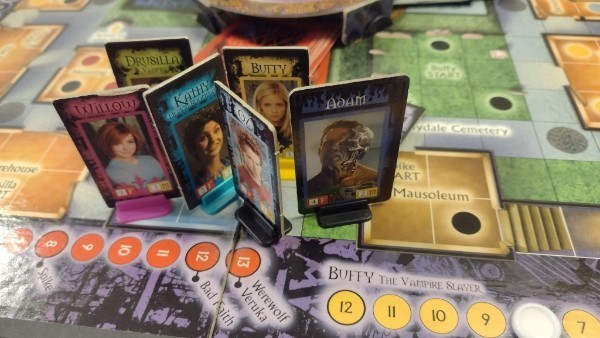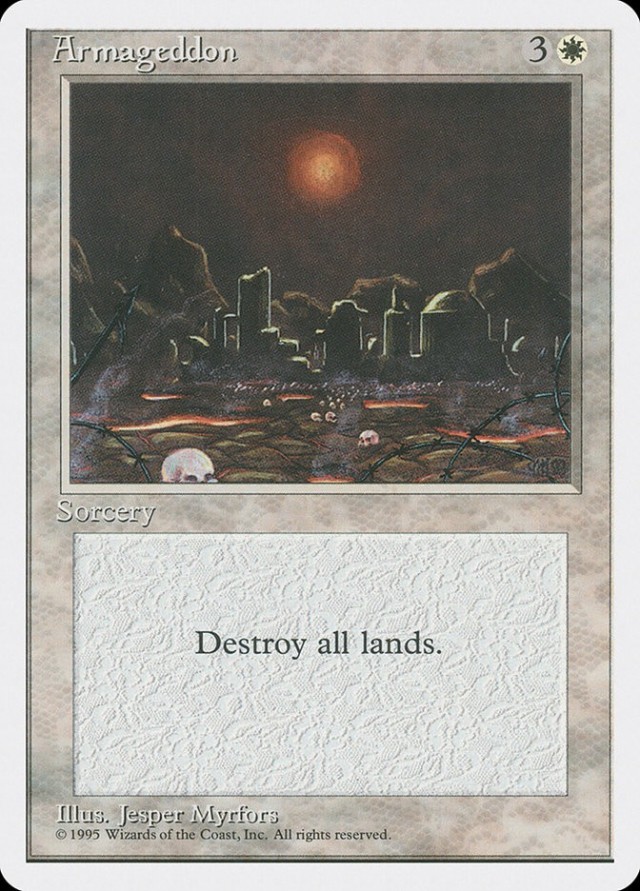I'm probably beating the last vestiges of flesh from a dead horse at this point, but I'm going to anyhow because as much as I write about it, I still don't understand it, and it's never been adequately explained: Why is it so important to so many gamers to acquire games rather than play the living shit out of what they have? Really, the question boils down to, "Why do so many gamers have no sense of value anymore?" It vexes me, and as I read about people's huge lists of shit they're planning to buy at the next big convention, I shake my head and wonder why.
It seems to me that the culture of Kickstarter is an extension of many people's good will; people are ultimately pretty generous and want to help a brother out when they can. I view Kickstarter as giving a guy money who may or may not give you something in return, and what you get in return may be quite dissimilar to what they initially thought they were going to get. That's just part of Kickstarter, which is fine as long as people remember the phrase, "caveat emptor", before they click "pledge". But it's not so much the pledging or buying something sight unseen that vexes me, it's the fact that these games are generally very expensive, even in the board game world, and that so many people are serial backers who do not appear to be serial players. Why buy 50 games a year, every year, when it's incredibly unlikely that you'll play each of those games more than four or five times in the span of two or three years, especially if you're buying and trading for the same amount of games every year?
I understand that people buy for the "experience", sort of like paying $10.00 each to go to the movies when you can pay $4.99 on Amazon Streaming a year later to see it in your home. It even makes some sense in that frame when you consider that a game played four times by two players that cost $100.00 on Kickstarter comes out to $12.50 a play, which is equivalent, more or less. The rub is that there are very few truly great games that come out every year, so it would be like going to see Ishtar and Battlefield Earth 3 out of 4 weekends, and only occasionally seeing a movie of the quality of Saving Private Ryan once in a great while. It just doesn't compute for me. Why not simply save all that money and buy the best of the best games, playing them repeatedly?
Consider also that if you buy a bunch of mediocre games, the "new game smell" wears off much faster than a game that is good, or great, because you simply don't want to take the time to play them and get really good at them, or really understand them, since they're just not good enough to command that sort of time investment. I'm sure this falls back into the "experience" philosophy, where just playing a game a couple times is sufficient to get the full experience. I'm sure there's also a social aspect to this phenomenon, as playing lots of games just enough to get the gist allows you to get onto your favorite forum and talk about your experience or answer questions, which gives one the sense of being "in the know", or a feeling of superiority in being experienced with a wide variety of games.
I think the largest reason I feel that the serial buying of mediocre games that you'll never play much bothers me is that I'm not of the mind that I want to just experience games. I've never played Princes of Florence, or Le Havre, or a host of other games, and I'm not entirely sure it makes me a worse person for never having played them. I don't feel the need to be able to interject in every single forum thread or at every game meetup. If it's a game I've never played, I'd rather listen to the conversation than actively participate. I just don't feel like I need to be superior, or some sort of fucking game aficionado, able to speak on every game ever made and offer up several games similar to that game with different themes or whatever. It just doesn't make sense to me that having that ability is worth spending several thousand dollars or more annually.
The real problem with buying all of these mediocre games "for the experience" is that sales are the only way producers can measure quality, or rather, the market's response to any given product. For every mediocre, or just plain shitty, game that gets purchased, it sends a signal to producers that there is a demand for that kind of product. Kickstarter, for instance, has become a great way for idea guys to get out from under the oppressive thumb of editors and quality control folks, which has an advantage in that a wider variety of products enter the market, but has the disadvantage of not having anyone but some guy with an idea produce a game that may or be complete, utter shit.
For instance, Gunship! First Strike is a very neat game, but had they had someone with some practical experience looking at the game, perhaps it wouldn't need to be a $50.00 game that was designed, apparently, for people with poor vision due to huge boards and cards. Also, it might have had a professional editor overlooking the rule book and it could have been far less difficult to learn. It's abundantly clear to me that very little blind play testing was done on that particular game, something that is an industry standard, and done by every traditional game publisher on the planet. It's these problems that are creeping into games of late, and I think it's due to the fact that people are buying "ideas" instead of "products", and not just using Kickstarter, but whenever they are buying games.
Some people buy games based on theme alone, which I fully understand, but the problem is that the industry's sales and marketing is done almost exclusively by "serial reviewers" and bloggers (like myself), and almost all reviewers that I've ever seen do not do many negative reviews for a host of reasons, some very valid in my opinion, and some not so valid. To write a negative review, you have to play the game enough to understand it on a fundamental level, and further, to form a strong opinion that will carry the review. This is a time and frustration investment, and most negative reviews I've seen (including every one of my own) were met with such venom and vitriol that it's even more of a reason to simply not review a game than to deal with the zealots. I've set up a policy here that if I receive a game, it WILL be reviewed in order to keep myself honest, but I am in the very small minority in this respect. Several reviewers I've spoken to indicated that they do not do any negative reviews because of the time involved.
What this means is that all the games you buy are almost always tilted in favor of a "buy" recommendation because the publishers aren't going to link to a scathing review if one even exists, and most reviewers won't even produce an article if they play a game once and hate it. Pair that with the predisposition of gamers to buy games that they're interested in based on either mechanics or theme alone, and you have a swirling vortex of a consumption culture. As noted, at the center of this vortex is the publishing world, where all of these "idea guys" are being told by the market that "those kinds of games sell reasonably well", which entices them to create more games that use some of the mechanics or themes in these mediocre but oft-purchased games, continuing the death spiral.
In the end, I think that we all have to do our part in order to keep the industry honest, by not buying things sight unseen, not buying games just to buy them irrespective of quality, and really, just being good stewards of our money and not rewarding mediocrity. If we all do that, publishers will produce less games, potentially, and more importantly, they will produce better games. "No more Munchkin and Atlanteon, lots more Space Hulk and Agricola" should be our battle cry, and we should resist the temptation to buy everything we see. If we don't keep the industry honest, who will?
 Games
Games How to resolve AdBlock issue?
How to resolve AdBlock issue? 












